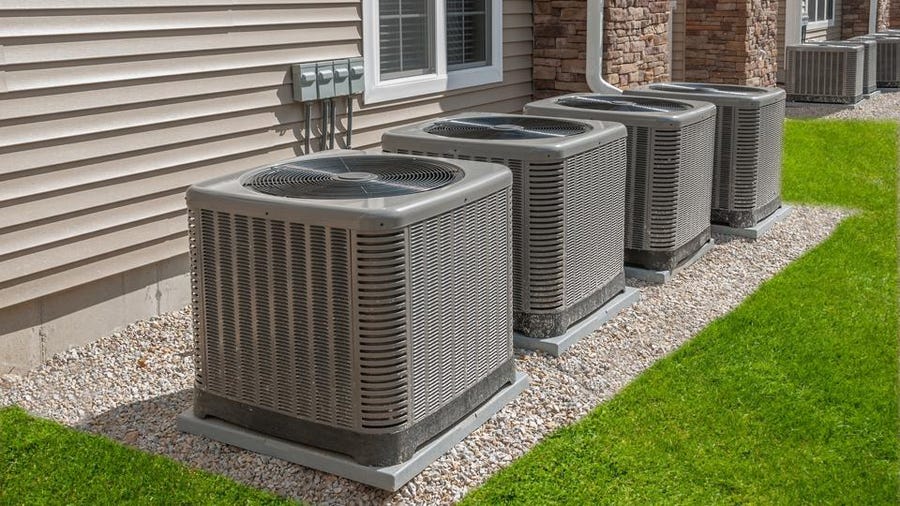
Enjoying the summertime looks a little different right now (thanks COVID-19), but what probably won’t change is the summer heat. That means most of us are already looking for ways to keep cool while keeping our costs down. You know the usual suspects: AC units, window units, and ceiling fans. There’s also, you know, praying for the heat wave to break.
But what about a whole new approach? What about a heat pump?
A heat pump is an all-in-one heating and air conditioning system. The unit “pumps”—or moves—the heat from one place to another. In the summertime, it acts like an air conditioner—extracting heat from inside and transferring it outside. But in the cooler months, your heat pump works in reverse—collecting heat from the outdoors and transferring it into your house.
Heat pumps come in two varieties: Air-Source and Geothermal.
Air-source heat pumps make the most sense in moderate climates. They take the warm air inside and transfer it outside, cooling you down. Or vice versa—the heat pump takes the warm air outside and brings it inside.
If you’re in a not-so-moderate climate, you might be thinking, “How in the heck does this work in the dead of winter? There isn’t any warm air outside to move into my house!” Well, there’s always some warm air outside, even when it’s freezing. But you’re right: If you’re in an extreme climate, an air-source heat pump likely won’t be sufficient.
That doesn’t mean you’re out of luck, though! For folks in super chilly climates, a dual-system approach might be worth considering. Basically, you add an electric heater or gas furnace that switches on when using the heat pump system would be too inefficient. It even works automagically: The heat pump constantly monitors its own efficiency, and when it senses it needs a bit more help heating your home, it makes the switch over to the other system.
Geothermal heat pumps use the same transfer principle—but between the air inside your home and the ground outside your home. This works especially well in those colder climates because the temperature underground is usually steadier (and warmer) year-round. That makes geothermal heat pumps more efficient. They are, however, more expensive to install.
Heat pumps offer a good number of benefits.
Of course, making an informed decision also means looking at the cons. And there are some pretty big ones when it comes to heat pumps:
Give us a call! We can help you determine if a heat pump is a right fit for your unique scenario. We’re Austin’s trusted HVAC pros, and we’d love to help you choose your next steps for heating and cooling your home.